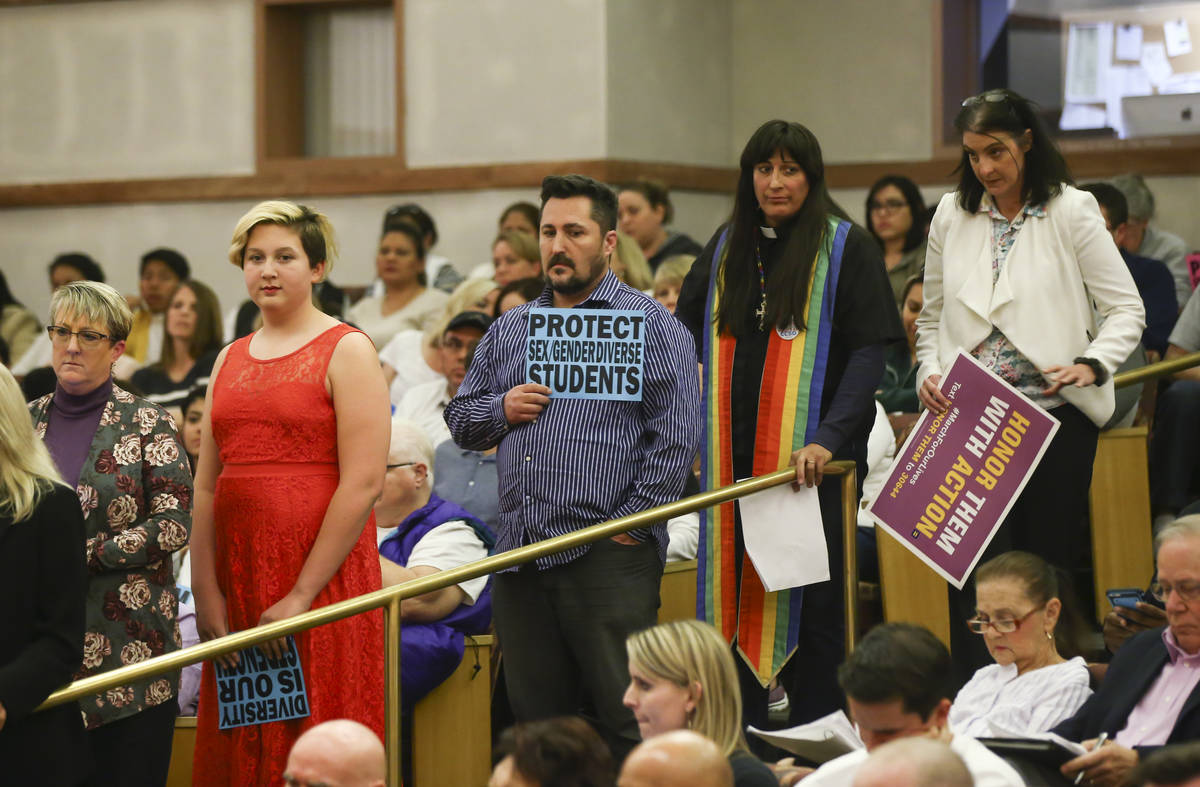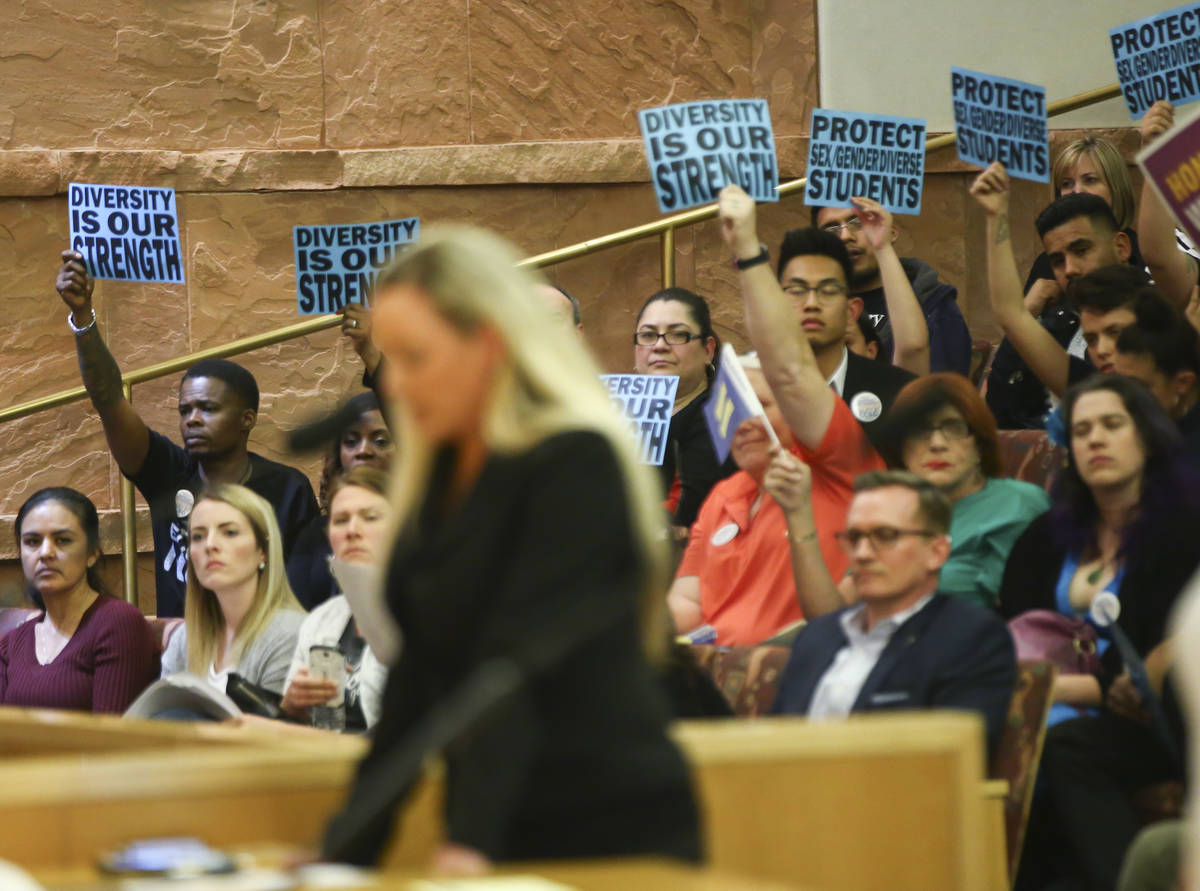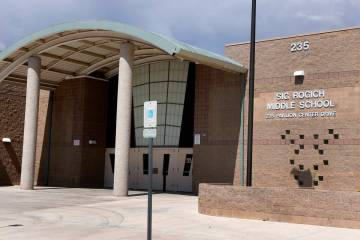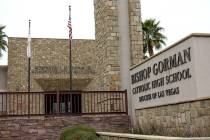CCSD public comment format proves puzzling in COVID era
Before the COVID-19 pandemic closed the Clark County School District boardroom, one of the defining features of the board’s biweekly meetings was the fiery public comment period, when speeches, signs and the occasional jeer would take center stage.
But the oratory has been notably muted since the board moved to virtual meetings under an emergency order issued March 22 by Gov. Steve Sisolak. Instead, emailed public comments are now summarized for the record, a move that has drawn criticism and even repudiation in a special education-related lawsuit.
At a Wednesday work session, the board discussed how it could move to reinstate live public comment in some format, with options ranging from recording comments and playing them at the meeting to offering live call-in comments, as some other public agencies like the state Legislature have done.
“The intent of public comment is to hear the public’s voice,” Trustee Linda Cavazos said. “It does seem to me that the public and our constituents are not happy with the way we’re doing this.”
School Board members currently meet remotely via Google Meet, with sessions broadcast live on Facebook and on the district’s website. Board President Lola Brooks said that’s one of the main roadblocks to offering live comments.
“The problem is with being able to stream using our existing technology in the board office and also do a meeting virtually with all the trustees,” Brooks said. “Other boards are doing in-person meetings to some extent, so they can overcome technology issues.”
Temporary solution
Brooks said during Wednesday’s meeting that the email was put in place in the spring as the best temporary solution. Over the summer, a weighty topic like reopening schools drew over 1,500 emailed comments, which were attached in full to the online agenda and summarized during the meeting by executive assistant Cindy Krohn.
Troy Eggelston, a coordinator in CCSD’s telecommunications department, said the district is working on a solution that would allow the public to leave recorded comments, which would be reviewed and sent to the broadcast team to cue up and play during the meeting.
But trustees also asked staffers to look into how other public agencies were incorporating live public comment into their proceedings in order to potentially follow their example. Cavazos and Trustee Danielle Ford were ultimately tasked with spearheading a solution.
The Clark County Commission, for example, relied on Cisco Webex for live comment earlier this year, a representative said. It has also since resumed in-person meetings.
The Legislature’s solution, should the board choose to adopt it, may require some board members to attend in person, Cavazos said.
Other concerns floated by trustees and staffers include cost, screening calls and getting informed consent from members of the public before a recording is made.
The district does allow for call-in comments during its periodic virtual town hall meetings, but the sessions don’t require a visual livestream, and use of the software costs around $700 to $2,300 per session, according to district documents.
Some reasonable flexibility
“Regardless of how we do this, there should be no type of choosing which public comments get played or get put on the record,” said Ford, adding that an exception can be made for explicit or inappropriate content.
Public comment by email is allowed under Sisolak’s Emergency Directive 006, recently extended by Directive 029.
Richard Karpel, executive director of the Nevada Press Association, said public comment provisions of the state’s open meeting laws allow some reasonable flexibility in the time, manner or place that that such commentary is offered.
“The issue is what does reasonable mean. You can drive a truck through ‘reasonable,’ and it seems CCSD is doing it with an 18-wheeler,” he said.
Karpel outlined two possible paths forward for the district: Either follow the lead of other boards and meet in person with safety measures in place to allow public access, or allow members of the public to briefly join the videoconference to give their comments. Email alone is likely not a creative enough solution, he said.
“The good news is that they’re thinking about it,” he said.
Other policy changes proposed
Work sessions like Wednesday’s are reserved for the board to discuss its policies and procedures, including some that have caused controversy at meetings.
For example, one policy revision put forward by Trustee Deanna Wright on Wednesday would have clarified that the board president chairs any special meeting that’s called, unless they are unable to attend.
But Ford requested that special meetings like the one that she, Cavazos and Trustee Linda Young called in July to discuss Superintendent Jesus Jara’s contract, instead be chaired by one of the people requesting the meeting. Brooks disagreed, citing concern that the board president would be liable for other members’ behavior.
The July 29 meeting on Jara’s contract was abruptly adjourned by a vote by Trustees Wright, Brooks, Chris Garvey and Irene Cepeda before the board could discuss the superintendent’s contract. Ford asked on Wednesday that the rules of procedure be modified to allow the board to hear the full agenda of a special meeting before such a vote could be entertained.
Young also suggested that trustees calling such a meeting should have access to outside counsel other than the board attorney, who works with the full board.
Trustees did not come to a consensus on the special special meetings policy. Each policy review will come back before the board twice more for approval.
The board also approved a $23,500 contract to Thomas Alsbury of Balanced Governance Solutions for future governance training.
Contact Aleksandra Appleton at 702-383-0218 or aappleton@reviewjournal.com. Follow @aleksappleton on Twitter.












































